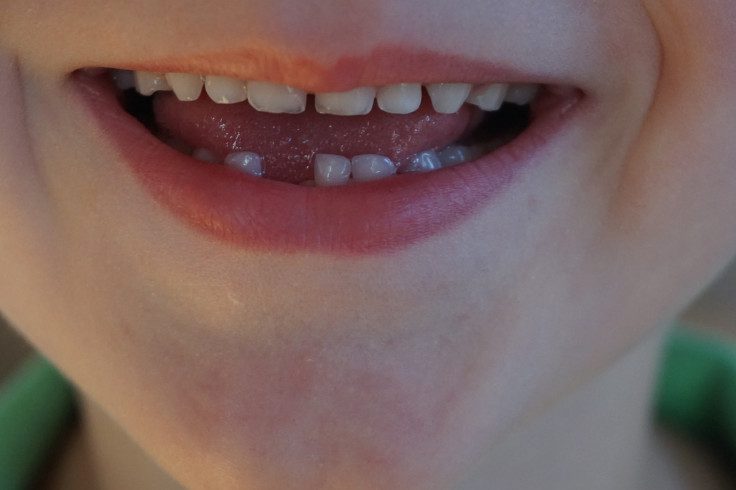Common Drugs Given To Kids May Be Affecting Their Teeth: Study
KEY POINTS
- Researchers investigated the impact of the common drugs on teeth
- The ones exposed to treatment had reduced enamel microhardness and mineral density
- The drugs "could be involved in the etiology tooth enamel defects," the researchers said
Common anti-inflammatory drugs given to children may have an impact on their dental health, as they can affect kids' dental enamel.
For their study, published in the journal Scientific Reports, researchers from the University of São Paulo (USP) in Brazil sought to find out the impacts of non-steroidal anti-inflammatory drugs (NSAIDS) celecoxib and indomethacin on the "biomineralization of enamel."
For years, the dentists at the Ribeirão Preto Dental School (FORP-USP) have been seeing a "sharp rise" in children getting treated for the "classical" signs of dental enamel defects (DED) such as dental sensitivity, pain or tooth spots, The São Paulo Research Foundation (Agência FAPESP) noted in a news release. DED, it noted, is observed in 20% of the world's children.
Some even presented with fractures in the kids' teeth even just from chewing, the foundation noted. And what piqued the researchers' interest is the fact that the ages wherein DEDs tend to form are also the ages when kids often get sick with high fever —sicknesses that are often treated using NSAIDS.
NSAIDS, the researchers said, are quite commonly prescribed to children. And they tend to "inhibit" cyclooxygenase (COX) as well as "reduce the production" of prostaglandin, one of the study authors, Francisco de Paula-Silva of FORP-USP, explained in the Agência FAPESP news release.
"COX and prostaglandin are known to be physiological for dental enamel, and we therefore wondered whether these drugs interfered in the normal formation of this structure," Paula-Silva said in the release.
To find out, the researchers used rats since their incisors grow "continuously." They used 60 rats, 20 of which were treated with celecoxib, while 20 others were treated with indomethacin for 28 days. The other 20 were in the control group that did not receive any treatment.
Researchers used various means to investigate the impacts of the drugs on the rats' teeth and found that the teeth of the ones treated with celecoxib and indomethacin had reduced microhardness and mineral density in the enamel. They "fractured more easily," according to Agência FAPESP.
The treatments also reduced the levels of Calcium and Phosphate, and the researchers found signs that the treatments impacted the dental enamel's composition.
In other words, it appears that the use of NSAIDS may have had a dental impact.
"Those findings show that non-steroidal anti-inflammatory drugs impact the enamel biomineralization and could be involved in the etiology tooth enamel defects if used during the period of tooth formation and mineralization," the researchers wrote.
"Right now, the study at least offers us a clue to the identity of a new player that may be involved in the development of DEDs," Paula-Silva said, as per Agência FAPESP. "Hitherto we've been totally in the dark."
That said, the researchers stressed the importance of conducting further studies on the matter, for instance, to look at the mechanisms behind the impacts of NSAIDS. The researchers were also planning further studies to confirm their results.

© Copyright IBTimes 2025. All rights reserved.






















